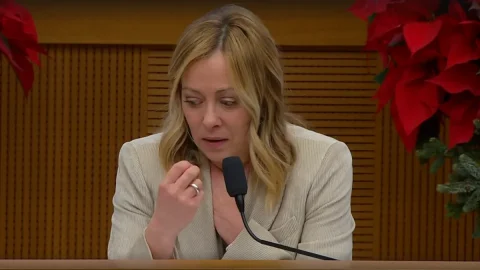A policy consistent with the objectives of combating climate change needs courage and vision. But no matter how much effort Europe makes in the agricultural field, we are still not there. And an organization like Confagricoltura is not there to be marginal due to national selfishness or half-measures that miss the point. Ministers Patuanelli and Cingolani listened carefully to what Massimiliano Giansanti, President of Confagricoltura said at the 101st Assembly of the association. The Italian agricultural world is ready to invest to increase the contribution to the fight against climate change and increase environmental sustainability. “But the objectives must be achieved by focusing on innovations and not just through restrictions. An answer must come from the punctual and full application of the Pnrr, which has a fundamental point in the ecological transition ".
Words addressed to Draghi's team which in Europe fought for a fair balance between national interests and Community strategies. Despite the defense of traditions and cultures typical of our homeland, it would be wrong not to compete with continental and global goals. After all, in addition to the programs already in development for some time or to be renewed, too in the agri-food sector, the pandemic has marked a watershed. All world leaders follow with tireless interest what happens in a supply chain capable of changing geopolitical balances.
The new CAP, says Confagricoltura, will enter into force in Europe in 2023, but already by the end of this year the member states will have to send the national strategic programs to the Commission. A regulatory novelty, of course, but to be built piece by piece on the territories and without financial or productive cunning. In a scenario made up of challenges and money, a recent study by Professor Marco Fortis, director of the Edison Foundation and professor of Economics at the Catholic University, on Italian agri-food excellence is recalled: “Know your strengths – says the teacher – it is essential for the elaboration of an effective strategy”. Who should develop this strategy? “The more entrepreneurs will be able to intercept innovation, the more the State will be able to accompany investments, says Patuanelli.
Travel companions of big industry, farmer-managers are at the base of the agri-food chain and often decisive in political coalitions. Are they all green? “The great challenge of sustainability is to find a meeting point between the growing demand for food in the world and the need to conserve natural resources,” Cingolani said. The agri-food sector can overcome this challenge by focusing on rationalizing the use of energy, water and chemicals, but also on strengthening the forest heritage and digitalisation. Three, four lines of intervention on which the cohesion of the government and the real attention for a central sector of the economy where local claims are not allowed will be measured.





